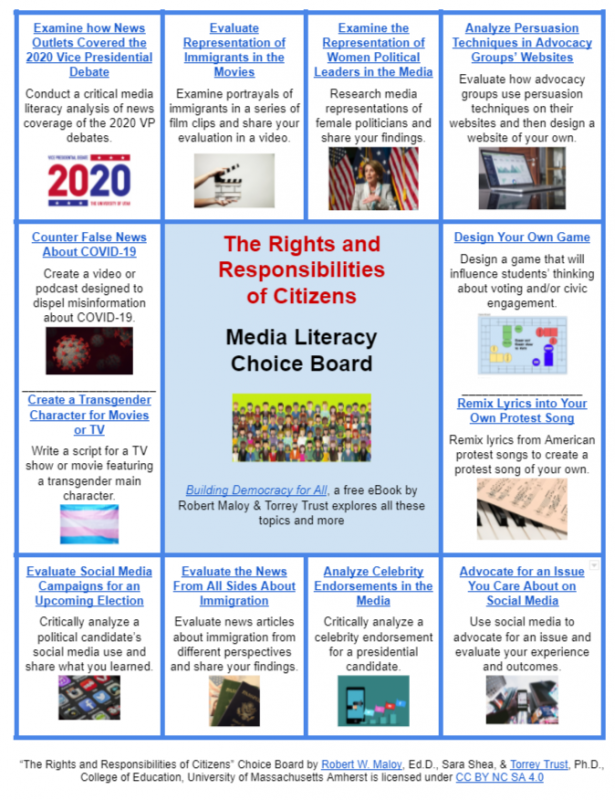“A citizen is a participatory member of a political community. Citizenship is gained by meeting the legal requirements of a national, state, or local government” (Center for the Study of Citizenship, Wayne State University, 2021, para. 6).
 Image by ArtsyBeeKids is under Pixabay License
Image by ArtsyBeeKids is under Pixabay License
In the United States, both citizens and non-citizens have rights and responsibilities in their civic, political, and private lives. They enjoy the freedoms of a democratic society while having responsibilities that they are expected to perform, including obeying laws, voting in elections, working with elected leaders, engaging in peaceful protests, and affirming the fundamental principles of American political and civic life.
U.S. history has numerous examples of individuals who showed political courage and leadership in support of democratic values and freedoms, but it also includes multiple times when individuals and groups failed to live up to the ideals of the Declaration of Independence and the Constitution. In modern society, public and private interest groups, political action committees, and labor unions, more than individual citizens, play powerful roles in lobbying for social and economic change.
The media literacy activities in this section explore topics related to citizen engagement and involvement in politics and society, including immigration, the COVID-19 pandemic, voting, gender in leadership, trans identities, political activism, political protest, political advertising, and the January 6, 2021 insurrection.
Media Literacy Choice Board
 The Rights and Responsibilities of Citizens Media Literacy Choice Board (view)
The Rights and Responsibilities of Citizens Media Literacy Choice Board (view)
(make your own copy of this choice board to remix/share/use)
Media Literacy Activities